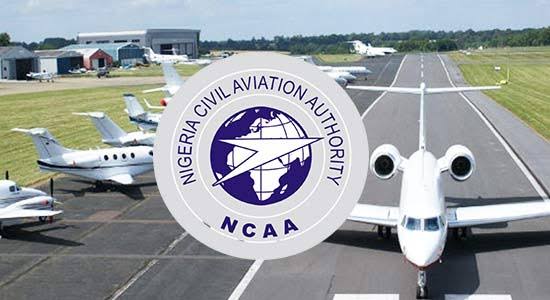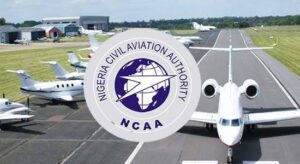


NCAA clarifies air operator certificate requirements, regulations
The Nigeria Civil Aviation Authority (NCAA) has addressed misleading claims about the hurdles to obtaining an Air Operators Certificate (AOC).
This clarification comes in response to a write-up that could misinform the public.
The Acting Director General, Civil Aviation, Chris Najomo, stated that the claim that illegal charters are due to confusing Civil Aviation Acts is unfounded.
He recalled that on July 4th, 2024, the NCAA suspended the Permit for Non-Commercial Flight (PNCF) of ten private jet operators.
This action followed a warning in March 2024, urging private jet operators to stop illegal charter operations.
An All-Operator’s Letter (AOL) issued on April 16th, 2024, directed all PNCF holders to apply for re-certification within 72 hours. This move aims to ensure compliance with aviation laws and regulations.
Operators and inspectors use the Civil Aviation Act 2022 and the Nigeria Civil Aviation Regulations (Nig. CARs 2023), which replaced the Civil Aviation Act 2006.
All relevant provisions from the 2006 Act are incorporated into the 2022 Act. Both documents are available publicly and on the NCAA website.
Moreover, Najomo said the assertion that there are four aircraft operating licences with undefined scopes is incorrect.
“Economic oversight involves issuing permits, licences, and authorizations, while safety oversight involves safety certificates. These processes are distinct yet complementary.
“According to Section 95 of the Civil Aviation Act 2022, no aircraft in Nigeria shall carry passengers or cargo for reward without proper authorization. Likewise, this provision is identical to the one in the Civil Aviation Act 2006.”
Specifically, he stated that Part 18 of the Nigeria Civil Aviation Regulations names economic licences and permits for different types of air transport.
“These include the Airline Operating Permit (AOP) for non-scheduled commercial air transport and the Air Transport License (ATL) for scheduled commercial air transport. He explained that the goal is to ensure airlines register legally and are financially sound to run an airline.
“After confirming economic viability, the NCAA subjects the airline to the safety certification process. Clearly, this process culminates in the issuance of an Air Operators Certificate (AOC) upon successful completion. Part 9 of the Nigeria Civil Aviation Regulations provides the provisions for obtaining an AOC.
“Furthermore, to guarantee safety, the NCAA requires a financial health audit before issuing an AOC. This practice aligns with international standards set by the International Civil Aviation Organisation (ICAO).
“The NCAA has streamlined the AOC process, extended validity periods and reduced certification phases. Fees for certificates and licences are necessary for cost recovery, as outlined in the Civil Aviation Act 2022.
“Contrary to claims, demonstration flights are essential for safety compliance, following ICAO guidelines. The NCAA’s policies ensure that operators meet international standards, maintaining Nigeria’s aviation safety and integrity.
“In conclusion, the NCAA remains committed to enforcing safety regulations and supporting legitimate operators. Continuous engagement with stakeholders is vital for the growth and safety of Nigeria’s aviation sector,” he said.


